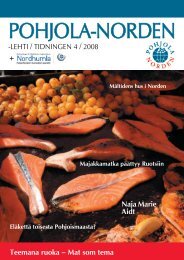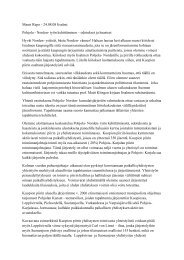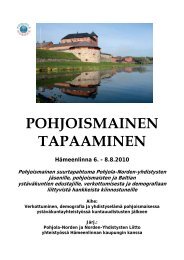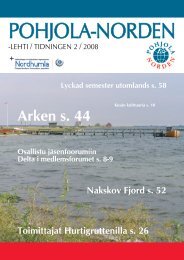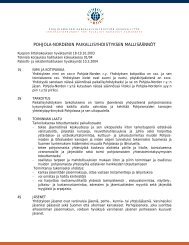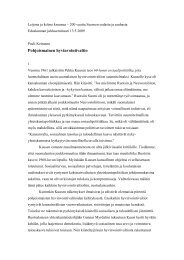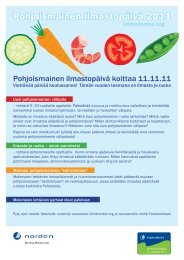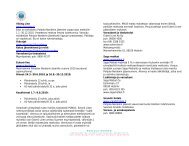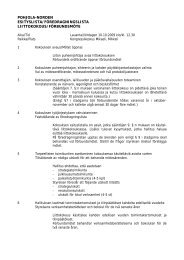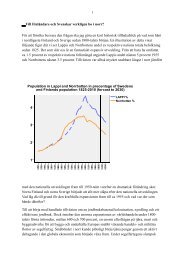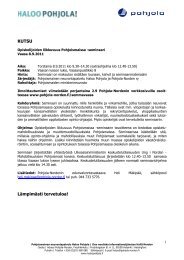The Nordic Model - Embracing globalization and sharing risks
The Nordic Model - Embracing globalization and sharing risks
The Nordic Model - Embracing globalization and sharing risks
Create successful ePaper yourself
Turn your PDF publications into a flip-book with our unique Google optimized e-Paper software.
Decentralization of<br />
pay bargaining is appropriate<br />
if shocks<br />
<strong>and</strong> <strong>risks</strong> are increasingly<br />
specific, if there<br />
are ample options<br />
for outsourcing, <strong>and</strong><br />
if individual incentives<br />
matter more for<br />
productive efficiency<br />
than Taylorist control<br />
<strong>and</strong> monitoring<br />
worked reasonably well for a long time. <strong>The</strong> large increase in both<br />
output <strong>and</strong> productivity in the electronics industry from the mid-<br />
1990s onwards was enhanced by a Rehn–Meidner type of incomes<br />
policy, which supported investment <strong>and</strong> expansion in high tech<br />
firms with good profitability.<br />
We suspect that the need for industry-wide adjustment<br />
mechanisms is far weaker today than it was in the early post-WWII<br />
decades. <strong>The</strong> system of uniform <strong>and</strong> moderate pay increases may<br />
well have suited volatile export industries in small countries in<br />
the era of a Taylorist organization of production (into many rather<br />
similar tasks). In the global economy of today, by contrast, shocks<br />
<strong>and</strong> structural transformations are increasingly firm-specific or<br />
even task-specific – not national or sectoral. Firms can outsource<br />
many parts of their production, <strong>and</strong> outsourcing of tasks is increasingly<br />
a vital competitive instrument. A general pay agreement for<br />
an entire industry is too blunt a tool for controlling costs in such<br />
circumstances. If a particular operation is threatened by outsourcing,<br />
it does not make sense to cut all the wages in the entire firm or<br />
industry – in the way it once made sense to moderate all costs of<br />
paper mills if the price of paper declined. Successful <strong>Nordic</strong> firms<br />
must be able to seek productivity increases via outsourcing <strong>and</strong><br />
reorganization of production. 5 Inevitably, global firms will need to<br />
operate their own pay <strong>and</strong> personnel policies with due regard to<br />
the increasingly global market.<br />
Moreover, production techniques have evolved in ways that<br />
increase the importance of individual incentives as compared to<br />
direct control <strong>and</strong> monitoring. In Taylorist industrial production it<br />
made sense to tie pay to particular tasks <strong>and</strong> to do that in collective<br />
agreements. In the Taylorist era, there were many similar tasks<br />
within firms <strong>and</strong> it was easier than it is now to monitor <strong>and</strong> measure<br />
the performance of employees. In modern production conditions,<br />
the performance of individuals <strong>and</strong> groups is often harder to assess.<br />
Remuneration should be based on a variety of performance indicators,<br />
<strong>and</strong> remuneration schemes should be tailored with regard<br />
to the tasks <strong>and</strong> the personnel at h<strong>and</strong>. It makes far less sense to<br />
regulate final wage outcomes in collective agreements.<br />
Wage bargaining with more flexibility · 121




